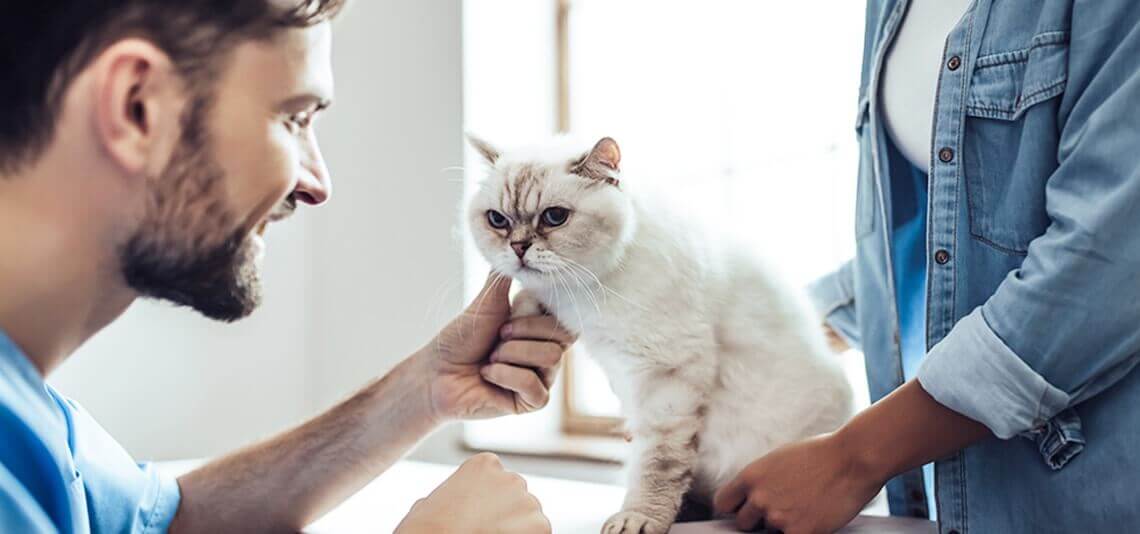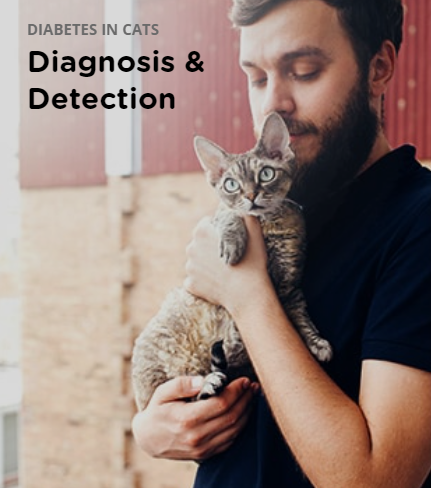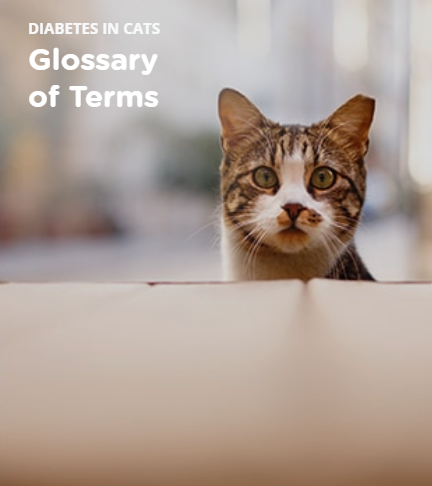

DIABETES IN CATS
What is it?

Diabetes Mellitus
Diabetes Mellitus occurs when a cat’s body produces too little insulin, stops producing completely, or can’t utilize it properly. The condition affects the concentration of glucose, or sugar, in the cat’s blood.
When your cat eats, carbohydrates are converted into several types of simple sugars, including glucose. Glucose is absorbed from the intestines into the blood, where it travels to cells throughout the body. Inside cells, insulin helps turn glucose into fuel. If there’s too little insulin available, glucose can’t enter cells and can build up to a high concentration in the bloodstream. As a result, a cat with diabetes may want to eat constantly, but will appear malnourished because its cells can’t absorb glucose.

Is diabetes in my cat the same as diabetes in people?
Diabetes in cats does resemble diabetes in humans. In fact, your veterinarian will be using medication, equipment, and monitoring systems for your pet that are similar to those used for people with diabetes.

How common is diabetes in dogs and cats?
Diabetes usually affects less than 1% of dogs and cats.3

Can diabetes lead to other health problems?
Yes. Cats with diabetes can develop other health problems.
Weakness of the hind legs is a common complication for cats. Persistently high blood glucose levels may also damage nerves, causing weakness and muscle wasting.
Controlling high blood glucose levels can lead to healthier outcomes for your cat. This is why early diagnosis of diabetes is important.

HAVE QUESTIONS?
Frequently
Asked Questions
PET DIABETES RISK QUIZ
Is Your Pet
at Risk?
Does your pet have signs of diabetes? Take the quiz and work with your vet for any next steps.
FOR PET PARENTS
Talk to Your Vet Today
Find a veterinarian to learn more about pet diabetes, and how cats can lead a happy, normal life with proper management.

References
3. Panciera DL, Thomas CB, Eicker SW, Atkins CE. Epizootiologic patterns of diabetes mellitus in cats: 333 cases (1980–1986). J Am Vet Med Assoc. 1990;197(11):1504–1508.
PETCARE ALLIANCE PARTNERS
Pet Diabetes Month is the property of Intervet Inc., d/b/a Merck Animal Health, a subsidiary of Merck & Co., Inc. or affiliated companies or licensors and is protected by copyrights, trademark and other intellectual property laws.
AlphaTrak 3 is a registered trademark of Zoetis Belgium S.A. and the Zoetis logo is a registered trademark of Zoetis Services, LLC.
Purina Pro Plan Veterinary Diets is a registered trademark of Societe des Produits Nestle S.A.
Vetsulin is a registered trademark of Intervet Inc.








